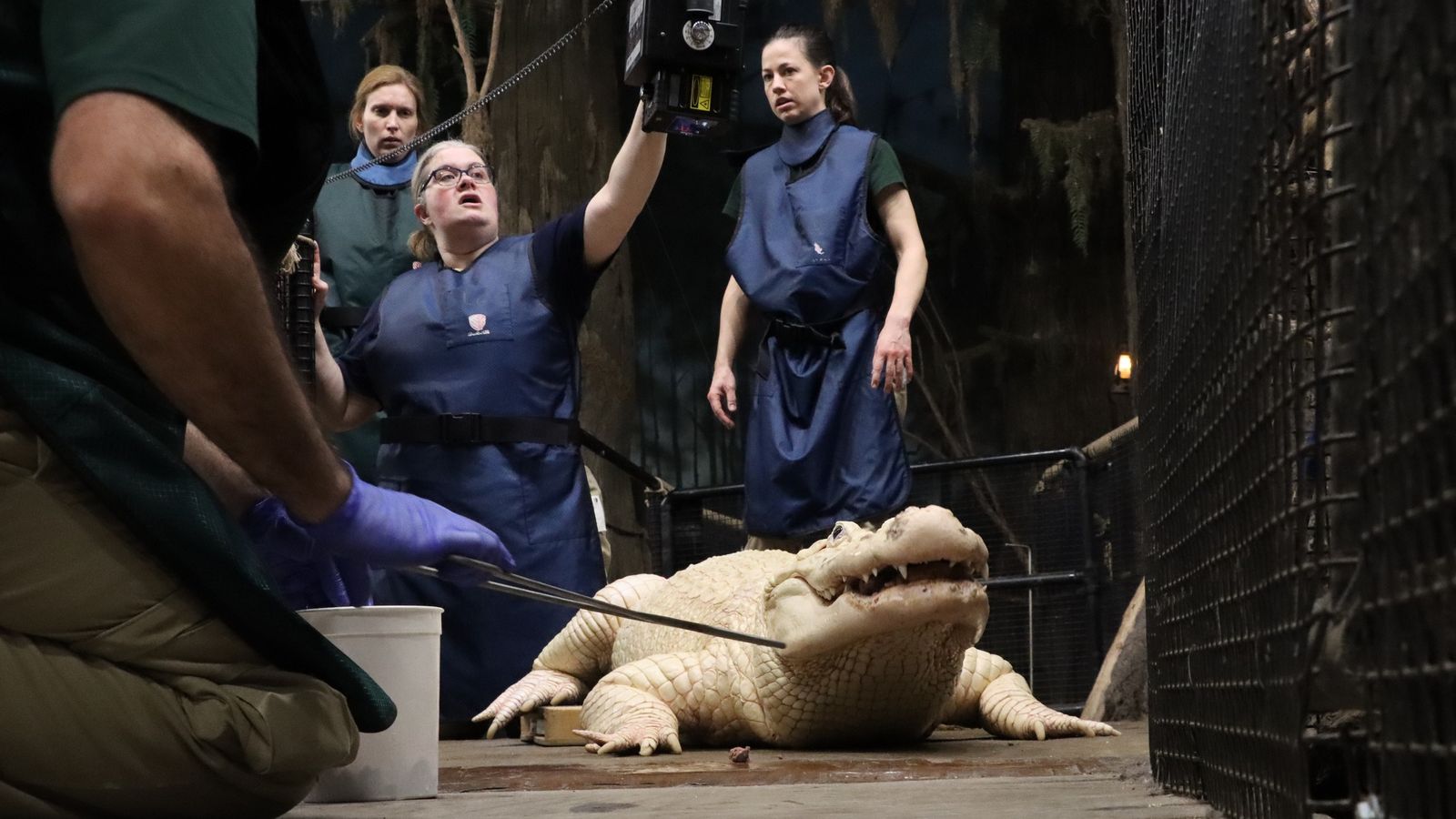An alligator at a US zoo has had 70 coins removed from its stomach.
The discovery was made in a 36-year-old rare leucistic American alligator named Thibodaux, who has white skin and blue eyes.
Staff at Omaha’s Henry Doorly Zoo and Aquarium in Nebraska made the discovery during routine health checks of their 10 American alligators.
A warning has now been issued to visitors not to throw coins into any bodies of water at the zoo.
“Any loose change can instead be turned in for a souvenir coin in one of the several machines around the zoo or in our coin wishing well located in the atrium of the Desert Dome,” the zoo wrote on Facebook.
Replying to comments on the post, it said the animal managed to eat the coins “in between cleanings” of its habitat.
It said it was “likely” that other alligators in its care will need to have the same procedure.
All the coins were successfully removed from Thibodaux and he is back in his habitat.
“With the help of his training, Thibodaux was anaesthetised and intubated to allow us to safely manage him during the procedure,” Christina Ploog, the vet who led the procedure, said.
“A plastic pipe was placed to protect his mouth and safely pass the tools used to access the coins, such as a camera that helped us guide the retrieval of these objects.”
Read more:
Man banned from keeping ferrets and snakes after pets seized
Why grey squirrels ‘outcompete reds’
UN reveals animal species under threat of extinction
Leucistic alligators are reptiles with the rarest genetic variation of the American alligator, and differ from albino alligators, which have pink eyes and a complete loss of pigment.
At the end of last year, a leucistic alligator was born at a reptile park in Florida. The newborn was the first solid white alligator ever to have descended from a nest of original leucistic alligators found in the Louisiana swamps in 1987.






















